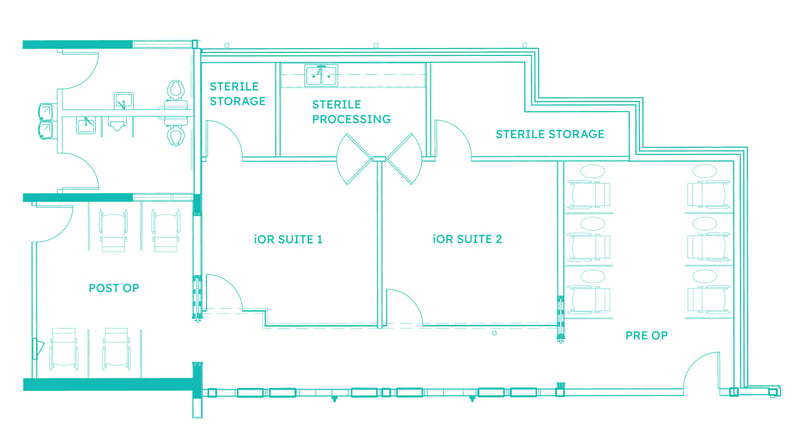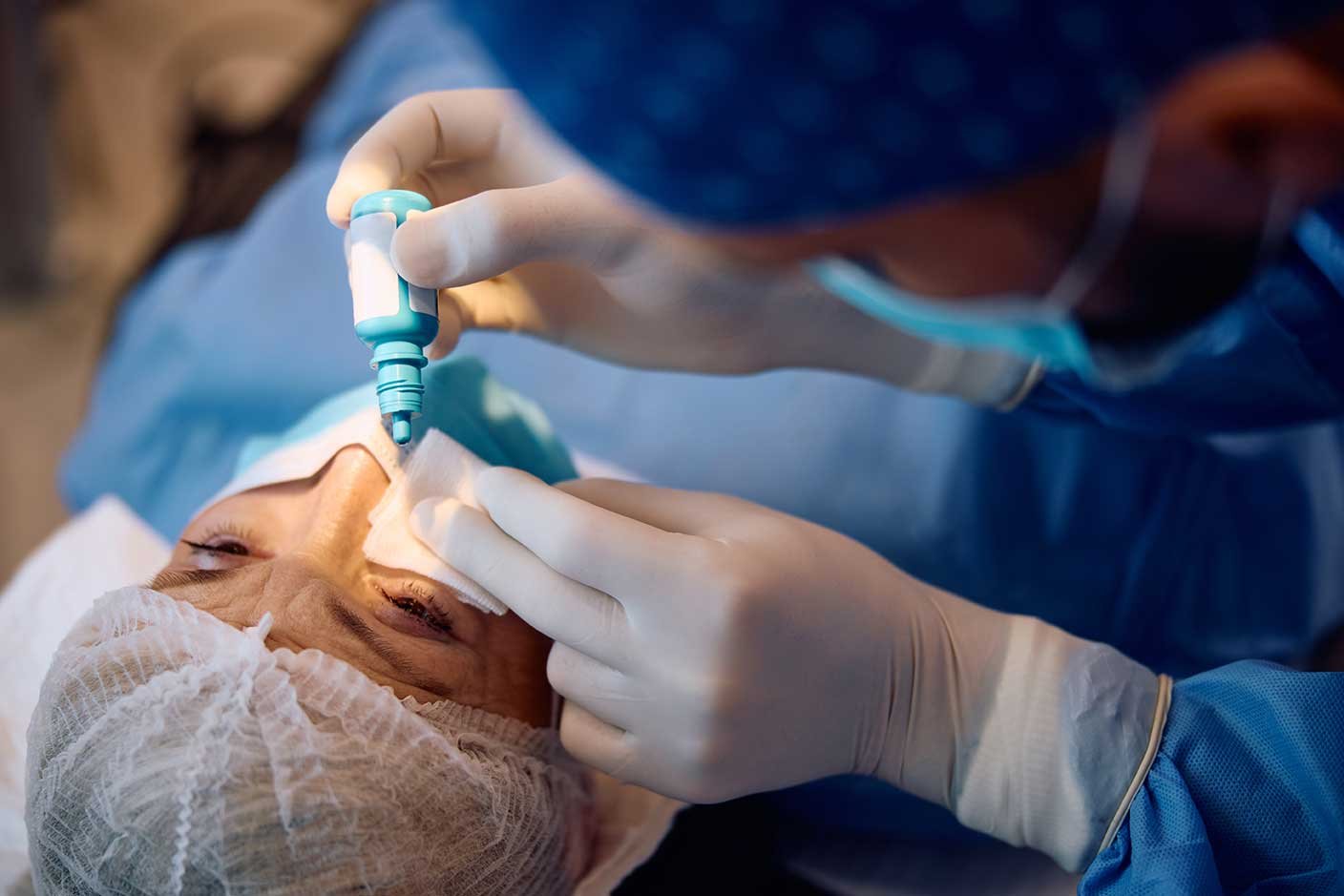Accreditation Standards
for Ophthalmic Office-Based Surgery
Office-based surgery (OBS) suites should follow the same ophthalmic safety standards, protocols, sterility, and infection control as an ambulatory surgery center (ASC) or hospital outpatient department (HOPD). The only difference between an OBS suite and an ASC or HOPD is that the former functions under the physician's license and the latter under a separate license.
Accreditation Classifications
OBS accreditation standards for ophthalmic procedures are equally as rigorous as any other licensed surgical facility utilizing Class A or Class B anesthesia.
Class A (Light oral sedation)
Medical clearance and patient monitoring are not required in any setting. By surgeon choice, 99% of OBS cases are performed with oral sedation.
Class B (IV sedation)
Medical clearance and patient monitoring by a licensed anesthesia provider are required. Less than 1% of OBS cases are performed with IV sedation by surgeon choice.
Anatomy of an Office-Based Surgical Suite
- Office-based surgical suites are full operating theaters designed explicitly for the procedures performed in them with the same facility layout and environment standards as those of an ASC.
- An accredited OBS suite will have the same equipment, commitment to sterility, and virtually identical pre- and postoperative staging areas as any standalone surgical center or hospital.
- iOR Suites® are accredited by The Joint Commission (TJC) or Quad A.
OBS Suite Floor Plan Example

Gold Star Standards for Ophthalmic Office-Based Surgery
Developed by iOR Partners & the Joint Commission
iOR Partners and The Joint Commission (TJC), the nation’s oldest and largest standards-setting and accrediting body in healthcare, share the common goal of delivering consistent, high-quality, and safe care.
Benefits of Ophthalmic-Specific TJC Accreditation:
-
A tailored survey approach specific to ophthalmic office-based surgery
-
A dedicated Joint Commission team, providing consistency to the survey process
-
A dedicated Joint Commission director of the application/re-application process, providing timely survey and accreditation results
-
Dedicated tools and services, including an extranet site for application fees, survey preparation tools and resources, and as well as ongoing accreditation maintenance
Related Articles

Safety & Efficacy
A growing body of research indicates OBS outcomes match or exceed those in other facilities. With 938,000+ successful outcomes, OBS is the epitome of safe and effective surgery.

Reimbursements
OBS is reimbursed by all major payors including Medicare. Instead of a Traditional Primary-National reimbursement of the facility fee, OBS surgeons receive a Secondary-Local reimbursement of their professional fee.

Anesthesia
OBS suites utilize either Class A (oral) or Class B (IV) sedation. The main difference is that the type of anesthesia used is the surgeon’s choice vs. facility protocols.
